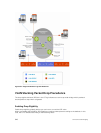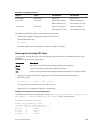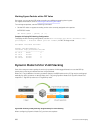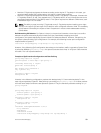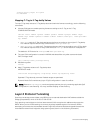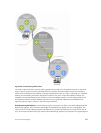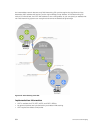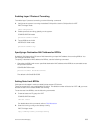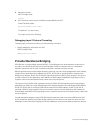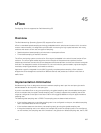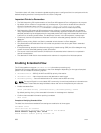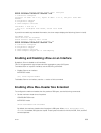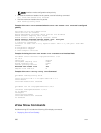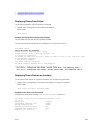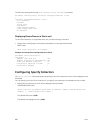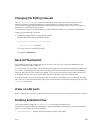3. Reload the system.
EXEC Privilege mode
reload
4. Set a maximum rate at which the RPM processes BPDUs for L2PT.
VLAN STACKING mode
protocol-tunnel rate-limit
The default is: no rate limiting.
The range is from 64 to 320 kbps.
Debugging Layer 2 Protocol Tunneling
To debug Layer 2 protocol tunneling, use the following command.
• Display debugging information for L2PT.
EXEC Privilege mode
debug protocol-tunnel
Provider Backbone Bridging
IEEE 802.1ad—Provider Bridges amends 802.1Q—Virtual Bridged Local Area Networks so that service
providers can use 802.1Q architecture to offer separate VLANs to customers with no coordination
between customers, and minimal coordination between customers and the provider.
802.1ad specifies that provider bridges operating spanning tree use a reserved destination MAC address
called the Provider Bridge Group Address, 01-80-C2-00-00-08, to exchange BPDUs instead of the
Bridge Group Address, 01-80-C2-00-00-00, originally specified in 802.1Q. Only bridges in the service
provider network use this destination MAC address so these bridges treat BPDUs originating from the
customer network as normal data frames, rather than consuming them.
The same is true for GARP VLAN registration protocol (GVRP). 802.1ad specifies that provider bridges
participating in GVRP use a reserved destination MAC address called the Provider Bridge GVRP Address,
01-80-C2-00-00-0D, to exchange GARP PDUs instead of the GVRP Address, 01-80-C2-00-00-21,
specified in 802.1Q. Only bridges in the service provider network use this destination MAC address so
these bridges treat GARP PDUs originating from the customer network as normal data frames, rather than
consuming them.
Provider backbone bridging through IEEE 802.1ad eliminates the need for tunneling BPDUs with L2PT
and increases the reliability of provider bridge networks as the network core need only learn the MAC
addresses of core switches, as opposed to all MAC addresses received from attached customer devices.
856
Service Provider Bridging



